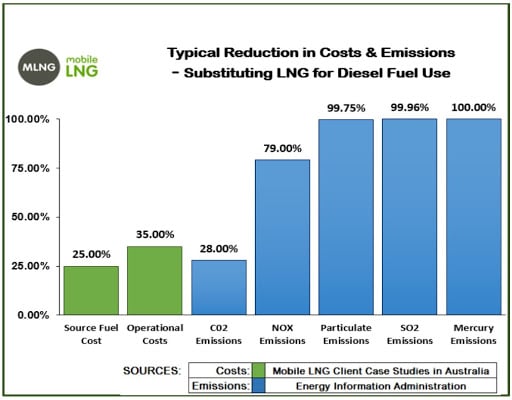Find out why the move to LNG in the shipping industry is such an important step...
LNG is cold pressurized cryogenic liquid gas. Dual-fuel engines have been in the marine industry for some time now, and the use of cleaner burning LNG is now viable as a marine fuel. It is currently the best way to comply with emerging emissions regulations. As energy storage systems become more efficient with greater capacities and lower costs, hybrid hydrogen and electrical powered shipping will be the industry’s next frontier. But those are at least 20 years away and in the meantime, LNG is the cleanest burning fossil fuel currently available.
Hybrid engines, such as the one on ‘MV Narrative’, utilize marine diesel when necessary in the dual-fuel engine. The International Maritime Organization is phasing out sulfur emissions from shipping and reducing greenhouse gas emissions by 40% by 2030 and 50% by 2050 which will affect MV Narrative’s 60 year life span. To reach those goals, biofuel including Renewable Liquid Natural Gas (RLNG) will become essential.
FACTS:
- LNG is the most environmentally friendly fuel for shipping
- LNG is readily available at ports all around the globe
- If LNG fueled all ships, it would mean a 15% reduction in GHG's^
- LNG can reduce particulate matter (PM) by up to 100%
- LNG exceeds current environmental requirements
 Using LNG not only results in reducing emissions of carbon dioxide (CO2), the main contributor to global warming, but also reduces other atmospheric pollutants including oxides of nitrogen (NOx) which can affect cardio-respiratory systems and other health issues. It also forms sulfuric acid rain which is highly toxic for aquatic animals. When using LNG fuel, sulfur oxide (SOx) emissions are eliminated entirely. Operating with LNG is an effective way to comply with current exhaust emission legislation, since LNG is one of the few fuels pure enough to meet the strictest regulations. In addition to enabling compliance with NOx and SOx restrictions, particulate matter is minimized by 95-100%. Particulate matter is combustion-generated dust that contaminates the lungs and passes through the bloodstream which can cause disease.
Using LNG not only results in reducing emissions of carbon dioxide (CO2), the main contributor to global warming, but also reduces other atmospheric pollutants including oxides of nitrogen (NOx) which can affect cardio-respiratory systems and other health issues. It also forms sulfuric acid rain which is highly toxic for aquatic animals. When using LNG fuel, sulfur oxide (SOx) emissions are eliminated entirely. Operating with LNG is an effective way to comply with current exhaust emission legislation, since LNG is one of the few fuels pure enough to meet the strictest regulations. In addition to enabling compliance with NOx and SOx restrictions, particulate matter is minimized by 95-100%. Particulate matter is combustion-generated dust that contaminates the lungs and passes through the bloodstream which can cause disease.
Along side LNG we will still have the capacity to use marine diesel, providing a dual fuel vessel, making our ship future proof.
Storylines is proud to be among the first passenger vessels utilizing LNG fuel.
GHG = Greenhouse Gases
^Source oceannews.com


